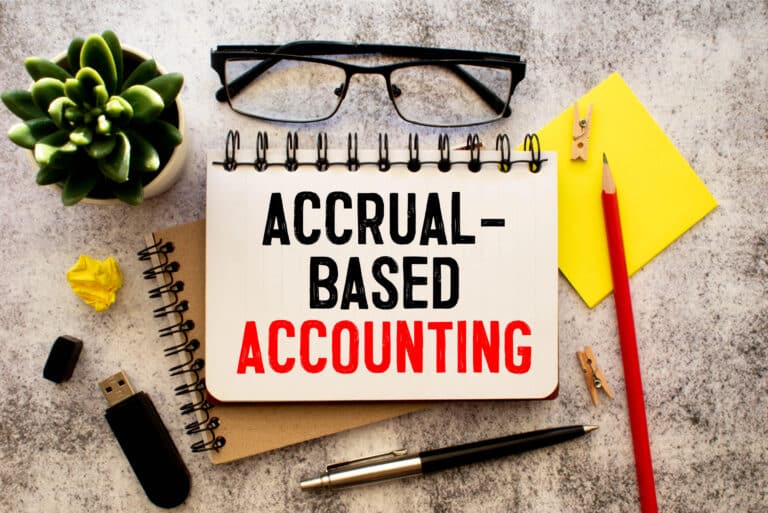- What is an S Corp?
- LLC vs. S Corp: What's the difference between an LLC and an S Corp?
- Who can own an S Corp?
- How do you open an S Corp? How do you elect S Corp status?
- What's the deadline to elect S Corp status?
- How do business owners get paid from an S Corp?
- What is reasonable compensation?
- What tax forms do S Corps file?
- When are S Corp income tax returns due?
- What are the federal income tax rates for S Corps?
- What are the state income tax rates for S Corps?
- Do S Corps receive 1099s?
- What are the requirements for S Corps to maintain corporate minutes?
- Summary
The vast majority of our customers are in the professional services space, particularly marketing and creative agencies, and operate as Limited Liability Companies (LLCs). Most of those LLCs have elected to be taxed as S Corporations (S Corp). As you can imagine, we receive a lot of questions from customers and prospects alike about S Corps, how to create one, how to operate one, and whether or not it’s appropriate for any given situation. Let’s dive in and unpack the most common questions we receive about S Corps.
What is an S Corp?
An S Corp is a tax election made by either an LLC or a Corporation. An S Corp is not an entity type. As such, you can’t go to your Secretary of State and open an S Corp, you must open a different type of entity (LLC or Corporation) and then make an election for the entity to be taxed as an S Corp.
LLC vs. S Corp: What’s the difference between an LLC and an S Corp?
An LLC is an entity type that’s created at the state level. An S Corp is a tax election that’s made at the federal level.
What’s a tax election?
In this case, a tax election means you’re telling the IRS “I want this thing (entity) to be taxed this way (as an S Corp).”
Since an LLC is a state level entity, the federal government (i.e. the IRS) allows the entity the flexibility to choose how it wants to be taxed. There are a couple of defaults, though:
- An LLC with one owner is a disregarded entity and defaults to being taxed as a sole proprietorship. Sole proprietorships are taxed on Schedule C, which is filed along with a personal tax return, Form 1040.
- An LLC with more than one owner defaults to being taxed as a partnership. Partnerships file an income tax return, Form 1065, but they don’t pay federal income tax. Partners report their share of the partnership’s income on Schedule E of their personal tax return, Form 1040.
Apart from the two types listed above, elections can be made to have an LLC taxed as either an S Corporation or a C Corporation.
Who can own an S Corp?
It’s important to note that an S Corp can only have 100 shareholders. An S Corp can be owned by:
- Individuals that are U.S. citizens or residents
- Estates
- Certain trusts
- Charitable organizations.
There are two other important things to note: 1) an S Corp can only have one class of stock, and 2) nonresident aliens cannot be shareholders.
How do you open an S Corp? How do you elect S Corp status?
First, a business owner will first either open an LLC or a corporation with a Secretary of State. Usually, this is in the state where the business owner lives. It’s best to consult an attorney whenever you’re creating an entity.
Second, the entity will need to obtain an employer identification number (EIN) from the IRS.
Then, the entity will either need to file Form 8832 or Form 2553 to elect S Corp status.

What’s the deadline to elect S Corp status?
An S election can be made up to 12 months in advance. For instance, you can make the election on 1/1/20X4 to be effective on 1/1/20X5.
However, an S election generally must be made within 75 days of when you’d like it to be effective. For instance, for an S election to be effective as of the first day of the current year, it must be filed by March 15th.
In some instances, an election can be filed later than 75 days after its effective date. However, the ability to make an election retroactive will be subject to the entity’s facts and circumstances. Late S elections must also follow very specific steps in order to be accepted by the IRS.
How do business owners get paid from an S Corp?
This is a common question that we receive from business owners. Usually when the business owner says “get paid” what they really mean is “get money out of.”
There are two ways an owner can get money out of an S Corp: 1) a traditional paycheck, subject to reasonable compensation and 2) distributions.
Owners that provide services to an S Corp are employees and should therefore receive a wage. The amount of wages received by the owner need to rise to a level of “reasonable,” which is discussed further below.
The other method in which an owner receives funds from the business is via distributions. Commonly, business owners refer to “distributions” as “dividends,” but the appropriate terminology is distribution(s). Only C Corps pay dividends.
Distributions are simply funds, hopefully from leftover profits, that the owner(s) take out of the business. For a deeper dive into S Corp distributions, check out this blog post.
What is reasonable compensation?
Most of the tax savings that come from electing S Corp status come by way of avoiding payroll-related taxes: Social Security tax & Medicare tax. Wages are subject to payroll tax, but distributions are not. Therefore, this puts the S Corp owner at odds with the IRS…
The S Corp owners’ incentive is to keep their wages low to maximize their tax savings.
The IRS’s incentive is to have the owner’s wages be as high as possible to maximize their tax revenue.
We are at an impasse.
To solve this issue, the IRS says that a “reasonable compensation” must be paid to shareholder-employees. There is no formula, per se, to determine what is reasonable. However, there are a number of Tax Court cases around this issue and the IRS does provide nine areas to consider when determining compensation of shareholder-employees:
- Training and experience
- Duties and responsibilities
- Time and effort devoted to the business
- Dividend history
- Payments to non-shareholder employees
- Timing and manner of paying bonuses to key people
- What comparable businesses pay for similar services
- Compensation agreements
- The use of a formula to determine compensation
For a deeper dive into reasonable compensation for S Corp owners, checkout this blog post.
What tax forms do S Corps file?
The primary tax form that an S Corp needs to file is Form 1120S along with the related forms. Form 1120S is the federal income tax return form.
Of important note, a Schedule K-1 will be generated for each shareholder with the preparation of the S Corp tax return. Schedule K-1 provides the amounts that each shareholder must report on their personal tax return.
In addition to Form 1120S and the related K-1(s), S Corps must file a state tax return in most states.
Other types of tax filings, such as payroll taxes, 1099s to vendors, sales tax filings, etc. are generally the same as for other business types.
When are S Corp income tax returns due?
Form 1120S is due on March 15th of each year. A six-month extension of time to file can be applied for with the filing of Form 7004. Form 7004 needs to be filed by March 15th to be valid.
What are the federal income tax rates for S Corps?
Trick question – S Corps are pass-through entities and therefore do not pay income tax at the entity level. Instead, the net income the S Corp generates is passed through to the owner(s) and taxed at the owner level. This is why Schedule K-1 is generated with the filing of Form 1120S, to tell both the owner and the IRS how much income from the S Corp should be reported and taxed on the owner’s personal tax return.
What are the state income tax rates for S Corps?
The answer to this question is mostly the same as the above, however, there are several states that have a tax on S Corp income or revenue. Each state is different, and the answer isn’t always black or white. State tax planning for S Corps is well beyond the scope of this article. At the time of writing, here are the states that you should be paying close attention to:
- California
- Illinois
- Massachusetts
- New Hampshire
- New York
- Texas
- Tennessee
Do S Corps receive 1099s?
The IRS exempts corporations from receiving 1099s from their customers for services rendered. Therefore, S Corps do not receive 1099s. However, a customer of an S Corp may request a W-9 from the S Corp. A properly completed W-9 will indicate to the S Corp customer that the business is an S Corp and no 1099 is required to be furnished.
What are the requirements for S Corps to maintain corporate minutes?
Corporations, including C Corps, at a minimum, should hold an annual meeting of the shareholders and board of directors (if applicable). Minutes of such a meeting should be kept to document all of the major decisions made and updates given at such a meeting. For instance, shareholder-employee compensation should be documented in the corporate minutes. This may or may not be required by state law, so consult an attorney.
In the event of an audit, the IRS is likely to ask for copies of the corporate minutes pretty early in the process, so be prepared.
Summary
S Corps are fairly complex to manage and to simultaneously stay in compliance. The most important things to understand before electing S Corp status for your business are how you, as the owner, will get money out and what compliance initiatives need to be undertaken.
Before making an S election, be sure to consult an attorney and an accountant. In recent years with the rise of DIY legal services, we have come across a number of S Corps that were not setup appropriately. Issues with the improper setup and management of S Corps usually don’t rear their head until you either least expect it or least want it. Such issues are always expensive to fix, so retain help upfront.




